The lack of guidance counselling in Bangladesh’s national curriculum and education system

For grade 12 students who have passed the HSC exams, their biggest point of concern is admissions. Most students under the national curriculum are conditioned from childhood to get themselves into a public institution, preferably an engineering university or a medical college.
This one route to academic success is engrained in the minds of students under the National Curriculum and Textbook Board (NCTB) as well as their parents. Any deviation from this established orthodox is met with familial shaming and societal condolences. And so, most kids terrified about their future prospects don't dare to step outside these well-defined lines.
Students in our schooling system are encouraged from a young age to pursue engineering, medicine, or simply study at a public university. They are seldom given the full picture of what a career in these fields might look like and are rarely presented with options outside of these choices.
Furthermore, our colleges don't have career or guidance counsellors to educate an admission candidate on the pros and cons of career choices. As a result, there is no adult to sit down and talk to them about their academic strengths and weaknesses which would have aided them in choosing a career better suited for themselves.
Due to this lack of information and the pressure from their families, students become frustrated and often choose to study what their friends are choosing to study, rather than choosing what might be best for them.
Nafiz Mahamud, an admission candidate from the capital's Government Science College said, "No one ever talks about anything other than BUET – Bangladesh University of Engineering and Technology – or Dhaka University (DU). But the competition is so high there. All my friends signed up for engineering coaching classes, so I did too. I was scared that otherwise I would get left behind. I understand that my parents want me to pursue a career in engineering, but I am not sure what I want. If I was given the choice I might have chosen to study History."
The obsession with technical degrees sprouts from the fact that it was historically easier to get a job after studying in these fields. The admission coaching industry is fine-tuned to capitalise on these biases. They sell the success stories of kids getting into public universities further reinforcing the half-truth that academic and professional achievement depends on one getting into a public institution. What they sweep under the rug are the stories of talented individuals who aren't cut out for engineering or medicine. For those who have the academic skills suited for these degrees and are genuinely interested in these fields, the system in place works for them. But this is not a majoritarian narrative.
For anyone wanting to pursue anything outside this established framework, there is no support system. There is still an active stigma working against admission candidates who want to get into a private university or even a university abroad. This is despite the fact that many private universities are ranked higher than public ones. Even in families who have the means, the understanding is that private universities are for the students who fail to get into a public one.
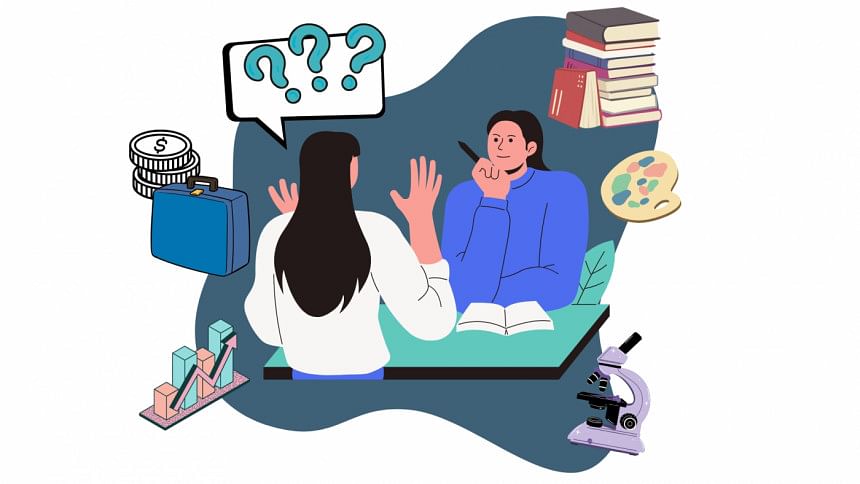
Ahsan Mohammad Mahin, an admission candidate from St. Joseph Higher Secondary School said, "Ever since I first heard of university, I have been conditioned into believing that getting into a public one is the only option. No one has ever actively encouraged me to pursue private universities. Rather, it's only ever been painted as a shameful last resort when all else fails."
These kinds of biases only work to distance a student from achieving their full potential. Many are left with lifelong scars of going through an admission process which isn't suited to their abilities. This creates unnecessary feelings of guilt, inadequacy, and self-doubt which they have to then overcome.
Meanwhile, national curriculum students hoping to go abroad for their higher education are almost immediately hit with a wall of obstacles. Insufficient time to build a unique profile is one of them, as students are rarely encouraged from a young age to try their hand at foreign institutions to pursue undergraduate studies. As a result, when application season rolls around, students have virtually no time to prepare for various standardised tests, language proficiency tests, interviews, etc.
Little to no support from teachers is another major problem that plagues students in the national curriculum. Since teachers themselves are also accustomed to the binary choice of engineering or medical after completing the HSC exam, they're often unable to provide any sort of guidance or assistance when students try to go abroad for studies.
Aritrya Saha Shuvo, an undergrad student at The University of Texas at Arlington, who graduated from Notre Dame College in 2022, was no stranger to these perils when he was applying abroad. He says, "As an NCTB student, I had to manage the entire college application process on my own, which was quite challenging. It felt like trying to solve a puzzle with no instructions."
He continued, "There was also no counsellor available to guide us. For instance, when I needed letters of recommendation, I had to approach nine or 10 teachers, explain the process to them, and persuade them to write the letters. What would have been most helpful is having access to a mentor or professional who could provide not just information but personalised guidance based on my abilities and interests."
On the flip side, students in foreign countries, like the USA, for example, are exposed to a far wider range of opportunities when it comes to their post-high school lives. Guidance and career counsellors work closely with students throughout all four years of high school to determine what trajectory someone should undergo. Each student's unique circumstances and capabilities are analysed, after which they are encouraged to pursue research universities, liberal arts colleges, athletic opportunities, technical degrees, community colleges, or whatever path best suits them.
Labib Al Karim, a Bangladeshi high schooler who studied in the US for a year through the Kennedy-Lugar Youth Exchange and Study (K-L YES) Program, said that his American high school appointed individual counsellors for each year in high school, and they all helped students figure out how to navigate life beyond high school.
"If someone says they want to pursue the engineering field, counsellors put them on a path that would help them get into engineering programmes in college, like preparing for the SAT, doing personal projects, reaching out to professors to do research work in a relevant field like physics, and so on," says Labib. "I have even seen counsellors recommend certain students to not pursue college at all because they're already skilled at and passionate about a certain job, like fixing cars, for example."
Due to the non-existent counselling infrastructure in Bangladesh's national schooling system, there has been a large influx of students enrolling in third-party counselling services and higher education agencies in recent years. In exchange for a sum of money, these services offer guidance on various educational pathways and assist with tasks such as essay writing and preparing supplementary materials.
However, these services are quite costly, barring students from low-income households from accessing help when it comes to applying to colleges and universities. Thus, it is imperative for schools to foster a culture that encourages students to pursue their dreams while also establishing the necessary support systems to help them achieve their goals.
Ayaan immerses himself in dinosaur comics and poorly-written manga. Recommend your least favourite reads at [email protected]
Mehrab Jamee is an activist at Sandhani, a 5th-year medical student at Mugda Medical College, and writes to keep himself sane. Reach him at [email protected]
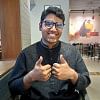
 For all latest news, follow The Daily Star's Google News channel.
For all latest news, follow The Daily Star's Google News channel. 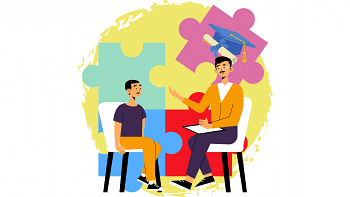
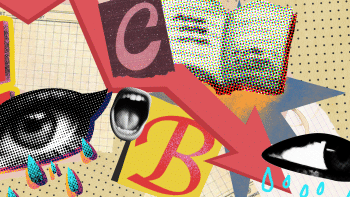



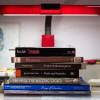





Comments